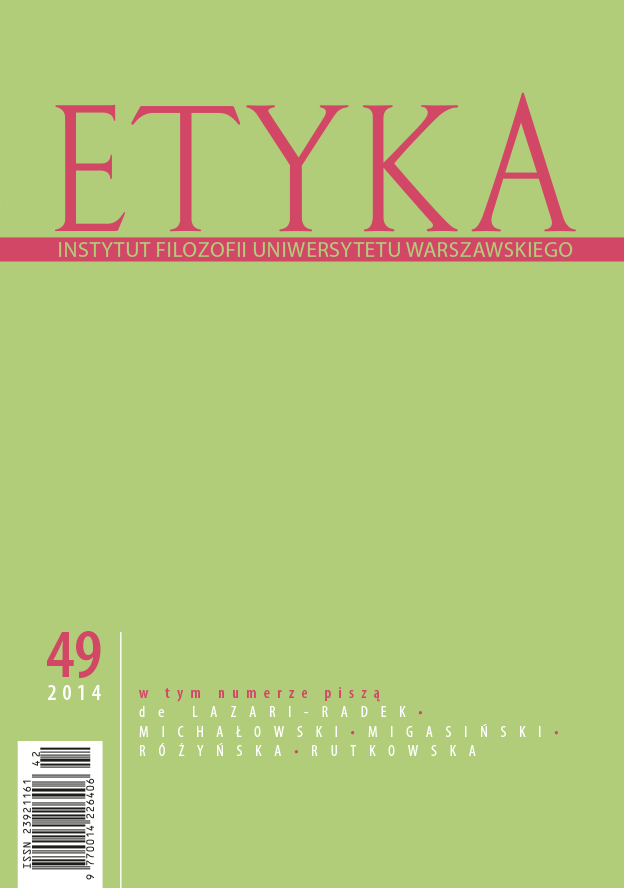Purely External Law – Owning – Acquiring. Introduction to the Kantian Notion of Ownership
Abstract
The purpose of the article is to explore selected aspects of Immanuel Kant’s theory of ownership. It is worth noting that despite the vast literature devoted to Kant’s philosophy, the sections of his Doctrine of Right dealing with ownership have been overshadowed by other, more widely discussed problems. Kant himself is partly to blame for this, as his lecture on property ownership is limited to but a few paragraphs concerning private right in the Doctrine of Right. In the subsequent sections, namely those dealing with public right, the concept of private ownership is all but mentioned. Despite the impression that this is not a substantial aspect of the Kantian philosophy of right, its importance is undeniable. In my article I focused mainly on those elements by means of which I could effectuate an introduction to the Kantian theory of property ownership; among them are the concepts of right as well as the division of the doctrine of right. I narrowed the scope of my study to acquired right which allowed me to explore further the concepts of property, ownership and the systematization of acquisition. I conclude with the assertion that only in a civil state can the individual subject’s property be apportioned and ensured.Downloads
Published
Issue
Section
License
Works published in ETYKA are available under the Creative Commons Attribution No Derivatives 4.0 International Licence (CC BY-ND), which entails acknowledgement of authorship without derivative works. Under this licence, Authors keep their copyrights and agree that their works can be used again legally for any purpose, including commercial ones, except for the creation of derivative works, without the need to obtain previous consent of the Author or publisher. The articles can be downloaded, printed, copied and disseminated; under the condition that the authorship is indicated accordingly, together with the place of original publication. The Authors preserve their copyrights to the above-mentioned works without any limitation whatsoever.



